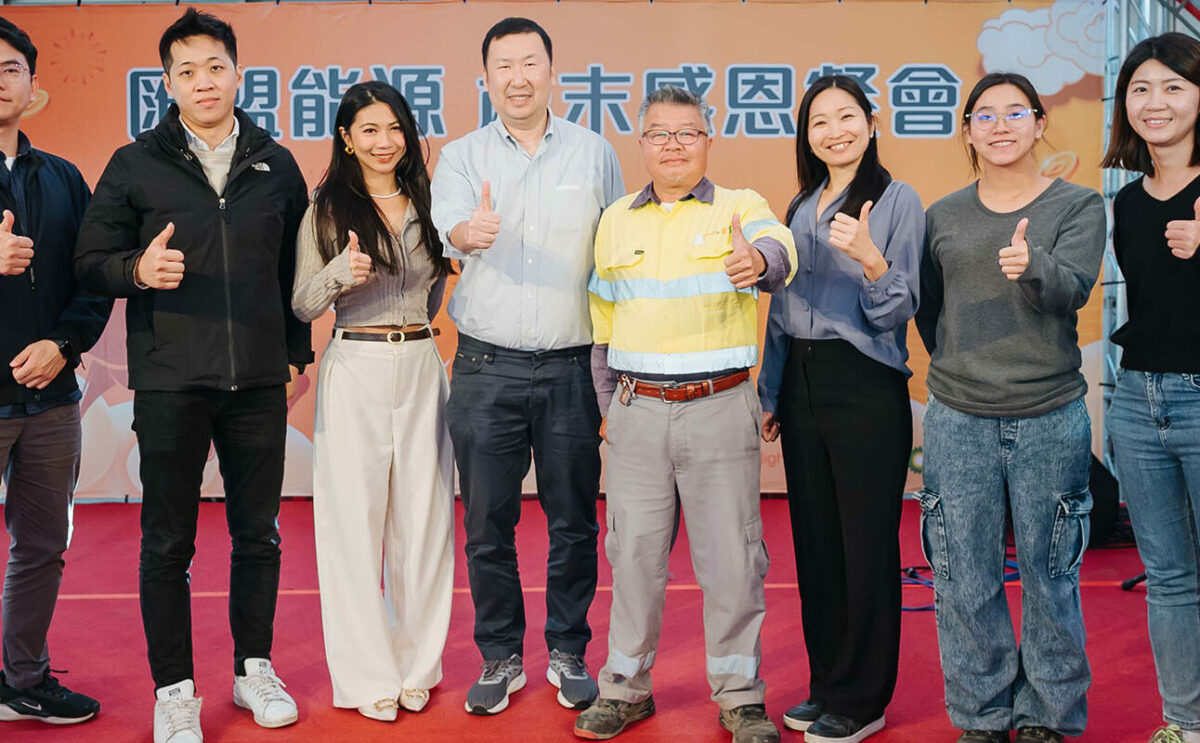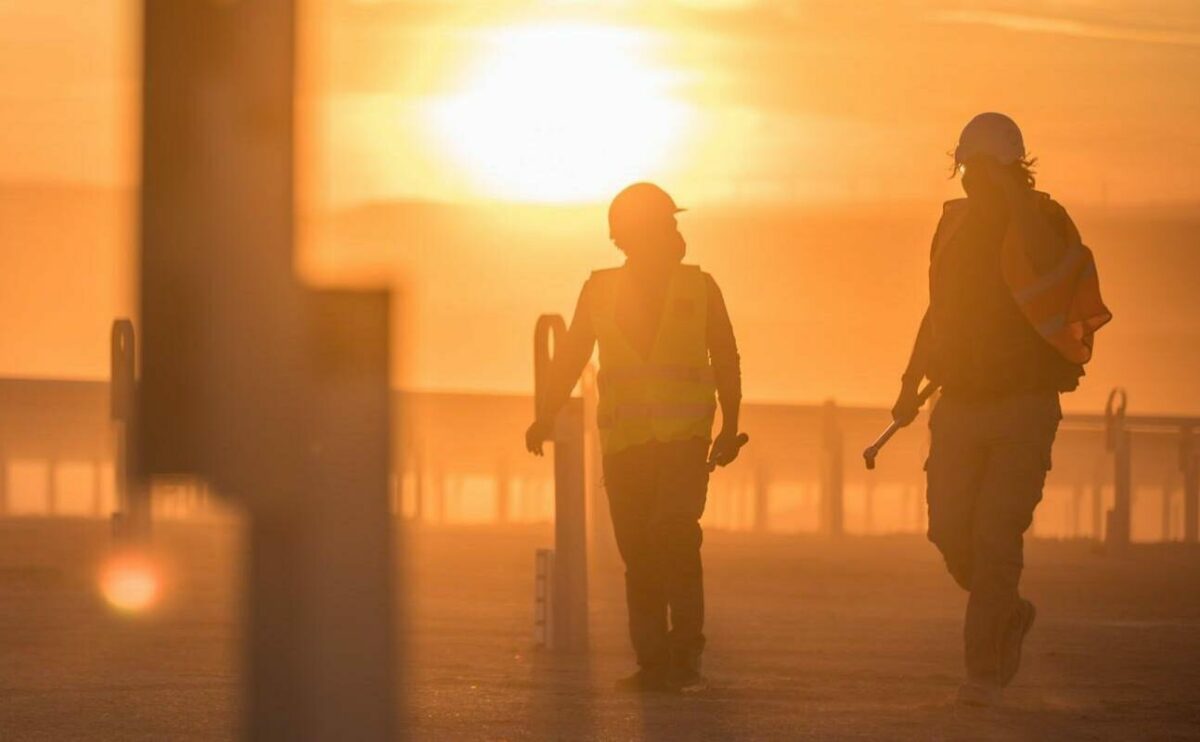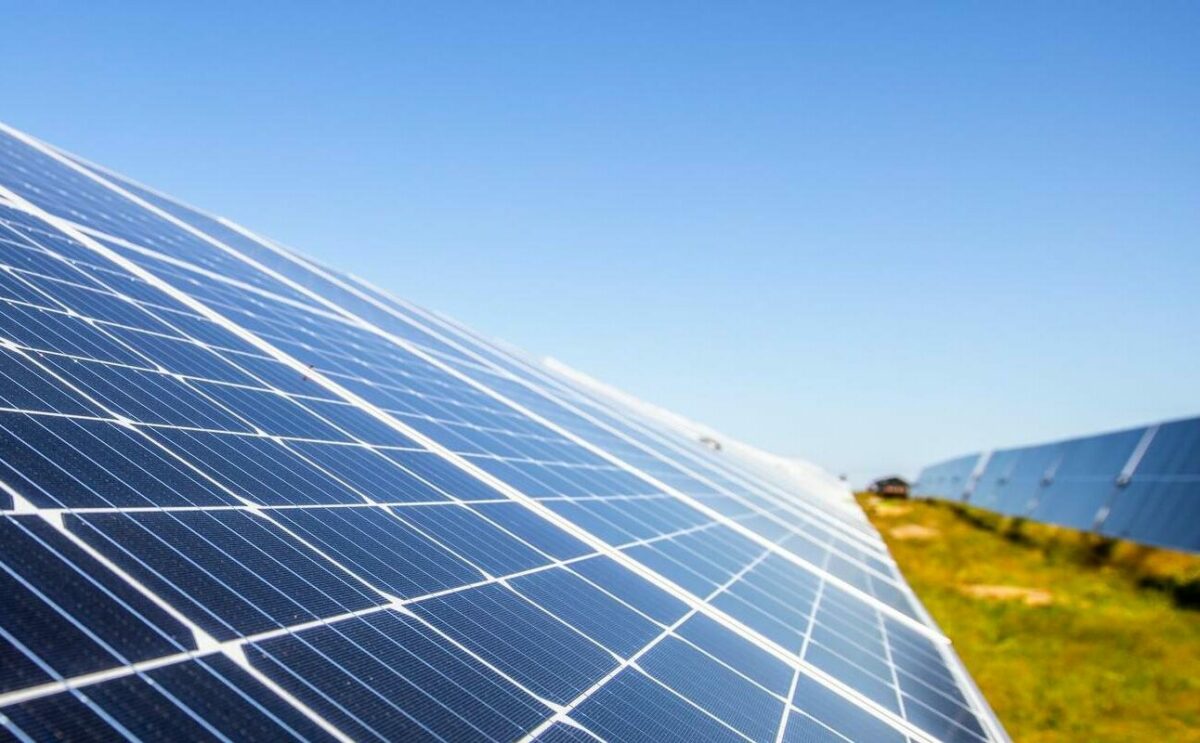Inspiring future energy leaders: ESCP students explore Manor Farm Eggington
On 4 March 2025, students from ESCP Business School’s London Campus were invited by renewables company Lightsource bp to an exclusive visit to the Manor Farm Eggington in Leighton Buzzard. The site is owned by the Bluefield Solar Income Fund and GLIL Infrastructure, and Lightsource BP are a service provider for operations and maintenance.. Organised in collaboration with the ESCP Energy Society, the visit allowed participants to build on their learnings from subjects like renewable energy, project financing, and electricity markets. The students gained valuable insights into the operation of a solar project and explored the challenges and opportunities of the energy transition in the UK.
Manor Farm Eggington solar: an example of dual land use
Developed by Lightsource bp in 2014, before being sold to the Bluefield Solar Income Fund and GLIL Infrastructure, the 5 MWp solar park supplies low carbon energy to over 2,000 households while incorporating biodiversity measures. A flock of sheep owned by the landowner grazed on the site, and some lucky students even spotted a rabbit running around, showcasing how agriculture, wildlife, and solar coexist.
An informative and immersive visit
- Health, Safety & Environment (HSE): Security protocols are prioritised to ensure staff safety during maintenance and to protect visitors. Camera surveillance and fencing have been installed to monitor the farm and prevent unauthorised access.
- Students participated in a guided tour of the solar park, led by the two field service engineers, George Mcivor and Wesley Bolt, where they learned about and discussed each stage of the site’s operation:
- Solar panels: Students learned how the panels were interconnected and how the operations team utilised thermal imaging cameras on drones to detect hotspots and faulty components. Since these panels were installed over a decade ago, the discussion also covered the potential incorporation of newer technologies in future projects, such as sun-tracking systems or bifacial panels.
- Pyranometer: This device, placed in the solar park, measures the incoming solar radiation at the site and is crucial for monitoring the performance of the solar park.
- Inverters: Three centralised inverters convert the direct current (DC) generated by the solar panels into alternating current (AC).
- Step-up transformer: Once the electricity is converted from DC to AC, it goes through a transformer where the voltage is increased, allowing it to be transmitted to the distribution network system.
- Site maintenance: The panels are cleaned annually using robots or tractors with special features, adhering to specific temperature guidelines. Cleaning is only conducted when temperatures range between 0°C and 18°C to prevent thermal shocks.
“This was my first time visiting a solar farm, and it was a great learning experience. It was interesting to see that energy generation can coexist with agriculture and biodiversity, with sheep grazing naturally maintaining the land. The Lightsource bp team also shared valuable insights into electricity markets, making the visit more engaging. Their strong emphasis on safety protocols stood out to me, ensuring efficient operations and a secure environment for workers and visitors.”
– Sakshi Ronghe, MSc in Energy Management Student, ESCP Business School
Interacting with industry experts
In addition to the technical and operational insights, students had the opportunity to interact with Cristiane Ribeiro, Associate Director at Bluefield Partners LLP, and Asset Managers Andrea Dominguez and Laura Tapiador from Lightsource bp. Discussions covered the economic models of solar farms.,
“It was great to hear from both the Lightsource bp team and the Bluefield Partners LLP team to understand the perspectives of the operator and the site owner. This experience helped me understand the stakeholder relationship more deeply.”
– Kanako Akiyama, MSc in Energy Management Student, ESCP Business School
The project’s sustainable dimension
Large-scale solar projects are often located on land where natural habitats exist. To minimise environmental impact, various initiatives are implemented to integrate the local ecosystem into site operations. Manor Farm was designed with an extensive Biodiversity Management Plan which included two new woodland areas and large areas of wildflowers which increase biodiversity levels and provide habitats for birds and invertebrates. Additionally, land maintenance is facilitated by sheep grazing, reducing the need for mechanical mowing.
Bridging the gap between students and the energy industry
The ESCP Energy Society is grateful to Lightsource bp, Bluefield Solar Income Fund, and GLIL Infrastructure for their hospitality and expertise, which allowed participants to interact with and learn from industry experts. The students gained a deeper understanding of the financial mechanisms that support these projects, and the technical, environmental, and operational challenges involved. This visit once again underscores the vital role of solar energy in the future energy mix and provides ESCP students with a practical insight into the sector’s challenges and opportunities.
Latest news
19 Feb, 2026
Be a good neighbour: the cornerstone of project success
Lightsource bp has a strong tradition of proactive and meaningful community engagement on our self-developed projects.
04 Feb, 2026
Energy in Focus – Safety that delivers: reducing risk and protecting long-term value
Safety is not only about protecting people – it is fundamental to how we deliver projects on time, reduce risk and protect long-term asset value across our global portfolio.
15 Jan, 2026
Lightsource bp’s hail mitigation solution showcased in the World Economic Forum’s Innovation Playbook for Future Power Systems
The World Economic Forum (WEF) launched the Innovation Playbook, showcasing practical, scalable solutions driving the transformation of global power systems.
















